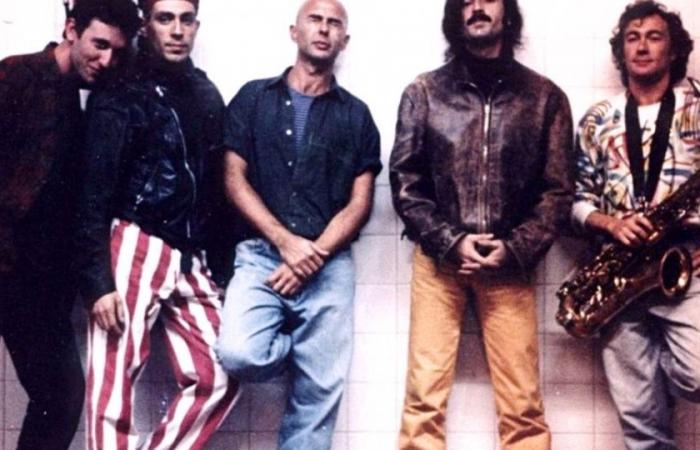
From a young age I am a fan of Patricio Rey and his Redonditos de Ricota, a band that whispered a caress to the soul in time where much of the rest were palazos. Above all I am a fan of a notable album they made in the mid -1990s. I know it is obvious but it is so. The album I mean is Luzbelito. Conceptual disc, superlative, a rock opera with seven -minute songs … If they hurry a little, I put it first in the ranking of the best national rock albums (if the rankings served for something in this world). And zoom in the album, I am a fan of the last theme, the one who closes and, therefore, closes this jewel: “Lost toys.” The longest song on the album, which does everything even more challenging and powerful.
The first time I heard Luzbelito de Corrido was on a route. With a group of friends we made a long trip, at the Falcon Model ’73 of Angelito. We left Bahía Blanca on the coast, Viedma, El Cóndor, Las Grutas, where we stop at the mythical Camping Rosita, Puerto Madryn, Lobería and so on until we reach Puerto Pyramids. From there we crossed the mountain range and then to Chile and we got a little lost in Pucón, Frutillar, Temuco, Villarrica, reaching fog – where we ate unforgettable faults to the Provencal -, and from there we returned along Route 40 to Bahía Blanca again. Trip of two and a half months, most of the journey we made sleeping in a Canadian tent, with an orange and tanned canvas tent as few, with a military green base and a huge logo that today would be vintage but that at that time was of poor only: Cacique Campingfor more data. The end of adolescence, the principle of adulthood, was losing toys, surely, without realizing it.
We liked to make long journeys at night, get to the next destination with dawn. We had that berretin and, above all things, we had that precious good: we had time. On that trip we carried some house holder, some ours and others borrowed, of older brothers, of cousins and so … it was the mysterious pot, there was everything in those boxes. I remember Laxatón de les Luthiers, a compilation of the Jiménez Mona, Puta’s Fever Black hand, the best of Lou Reed; Anyway, an infernal karaoke at a time when music accompanied us all the time.
One night, crossing the Patagonia on an empty route, we put Luzbelito. We traveled almost without speaking, my friend Angel driving and I on the side Cebando Mate, both concentrated in the white lines of the route, listening to the album over the rugid of the engine of the Falcon Model ’73.
-I remember, as if it were today, the shock that the complete album caused me. One more powerful song than the other, a cross to the jaw from which he listens. The way in which the Indian’s voice fit with the landscape, the desolation of the Patagonian plateau and its strange beauty. Skay guitar melodies, the caravan rhythm that crosses almost the entire album, that pain of a painful town of the mid -nineties in an Argentine that also looked otherwise looked at their lost toys, now in the hands of others.
Luzbelito is an album that I constantly return. He has the pulse that I would like to have my texts, and also does something that is extraordinary, closes with what I believe is the best song, he reserves the best for the end, which is a gesture of a relentless nobility. “This matter is now and forever in your hands, baby” The Indian joins us in the middle of the song, but after this sentence, and to close the theme, he comforts us again “when the night is darker/ the day comes in your heart.”
I invite those and those who feel, to put a listened to the album from end to end, and hopefully move them as much as I at that Patagonian night.
Andres Binetti is dRamaturg, director and theatrical teacher. Graduated from the staging career of the Metropolitan School of Dramatic Art. For his artistic work and dramaturgy work he has received different awards and nominations (Trinidad Guevara, World Theater, Florencio Sánchez, Theater XXI, among others). Since 2007, their dramaturgy classes have trained and trained Varixs Authorxs. You can currently see your piece The frozen rider Fridays at 20 at the Teatro del Pueblo.





